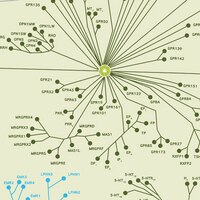HTS185RTA Sigma-AldrichReady-to-Assay™ EP2 Prostanoid Receptor Frozen Cells
Recommended Products
Overview
| Replacement Information |
|---|
Key Spec Table
| Species | Host Cells | Protein Target |
|---|---|---|
| Human | Chem-9 | EP2 |
| References |
|---|
| Product Information | |
|---|---|
| Components |
|
| Detection method | Fluorescent |
| Quality Level | MQ100 |
| Applications | |
|---|---|
| Application | Human EP2 GPCR frozen cells for Calcium Flux FLIPR Assays. |
| Key Applications |
|
| Biological Information | |
|---|---|
| Entrez Gene Number | |
| GPCR Class | A |
| Host Cells | Chem-9 |
| Protein Target | EP2 |
| Target Sub-Family | Prostanoid |
| Cell Line Type |
|
| Physicochemical Information |
|---|
| Dimensions |
|---|
| Materials Information |
|---|
| Toxicological Information |
|---|
| Safety Information according to GHS |
|---|
| Safety Information |
|---|
| Product Usage Statements | |
|---|---|
| Usage Statement |
|
| Storage and Shipping Information |
|---|
| Packaging Information | |
|---|---|
| Material Size | 1 kit |
| Transport Information |
|---|
| Supplemental Information |
|---|
| Specifications |
|---|
| Global Trade Item Number | |
|---|---|
| Catalogue Number | GTIN |
| HTS185RTA | 04053252323812 |
Documentation
Ready-to-Assay™ EP2 Prostanoid Receptor Frozen Cells MSDS
| Title |
|---|
Brochure
| Title |
|---|
| Advancing cancer research: From hallmarks & biomarkers to tumor microenvironment progression |








